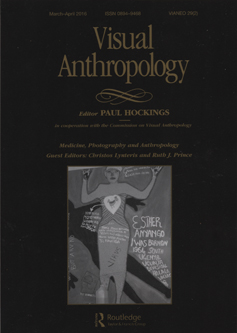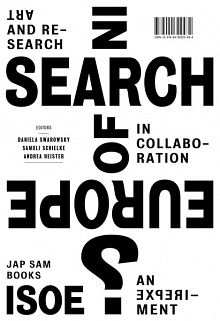The invention of forms of representation in the age of globalisation
Art and Research Residency 2017
Call for Participation
This programme aims to create an interdisciplinary and intergenerational exchange between
research and art practices around questions concerning the invention of forms of representation in the
age of globalisation. The primary goal of this programme is to interrogate conventional modes of
knowledge production that, by and large, marginalise the arts and their heuristic properties, in social
science and humanities. Our intention is to stimulate a debate addressing all aspects of collaboration
between artists and the academic world. We look for artistic and intellectual responses to the emerging
and existing tensions at the age of globalisation.
In a context of globalisation, in which goods and people continuously intersect with one
another, artists and intellectuals share the need to highlight the contradictions and new connections
between these intersections and create better forms of representation. They also share the need to go
out from well-known intellectual comforts and formulate unedited theoretical and methodological
propositions. Our objective is to stimulate a collaboration between academia and different artistic
streams, active in France and abroad, aiming to challenge traditional methods and academic discourses
around the following themes: identity, collective entity, the individual, mobility, the social role of
money and notions of beauty. We are particularly interested in topics that have emerged in
response to the fractures created by the expansion of the western world, and specifically in
forms of resistance to mainstream manifestations of the current globalised world. Our hypothesis
is that the age of globalisation all points of human interaction create some unedited ‘forms’ that ask
for new investigations. Artistic creations are the ‘ideas’ and the ‘objects’ through which the ‘real’ is
imagined, represented, reproduced, projected, described etc. Accordingly, they should play a central
role in the (re)production of contemporary societies and become more central in academic practices.
With ‘forms’ here we refer to analytical tools of interpretation for the construction of a system of
analysis, abstraction and data collection in research and teaching.
In order to stimulate this new space of dialogue, we would like to select two candidates for
this residency, one engage in artistic and the other in academic research. Although the academic
and artistic submission will be separate and independent, the selected people will be expected to take
part in the residency during the same period and to work in collaboration with one another. No
discipline will be privileged in the selection process. Over the course of their stay, the two successful
candidates will participate in the activities of the EHESS, Paris – that is, to seminars, workshops and
conferences. We hope that this dialogue between artists and academics will enrich the production of
knowledge in the arts as well as academia. The outcome of this exchange will be submitted to the
public. We particularly encourage submissions from the peripheral zones of globalisation.
All researchers and/or artists are eligible to apply to this programme, irrespective of discipline,
age, sex or origins. In this first phase of selection, applications can be written in the candidate’s
mother tongue. However, a working knowledge of English and/or French is necessary. We would also
be happy to receive suggestions of possible candidates from third parties.
The duration of the residency is three consecutive months.
The selection of the theme or the form of expression of the proposed work is open to the
candidate’s preference. However, the work proposed must conform to the thematic of the overall
programme.
The programme will cover transport costs and provide a monthly living allowance to each
candidate.
The period of the residency runs from March to December 2017, excluding the months of June,
July and August 2017. The period of the residency will be decided through discussions between the
candidate and organisers.
Submission and selection process:
Applications should consist of the following documents:
– A conceptual text (of up to 3 pages in A4 format, single spaced)
– A letter of motivation (1 page in A4 format)
– A short biography (for artists and academic researchers)
– A description of previous artistic works (for artists)
– A list of publications (for academic researchers)
In cases where a third party would like to propose a candidate, a letter of presentation along with a
short biography and some exemplars of previous work of the potential candidate will allow the
selection committee to consider the candidature and invite the candidate to complete the rest of the
proposal.
Proposals can be sent by email or by post to the following addresses:
Email :
Giulia Battaglia
inventformes@gmail.com
Postal address:
Jean-Bernard Ouédraogo
IAC-LAIOS (CNRS UMR 8177)
Ecole des Hautes Etudes en Sciences Sociales (EHESS)
5ème ETG Bur.588 Noyau B
190 – 198 avenue de France
75244 Paris Cedex 13
The deadline for submissions is: 16 February 2017
The selection committee, composed of artists and researchers from social sciences and the humanities,
will select two projects, one proposed by an artist and one by an academic researcher.
The final decision will be taken after an interview with the selected candidates.


